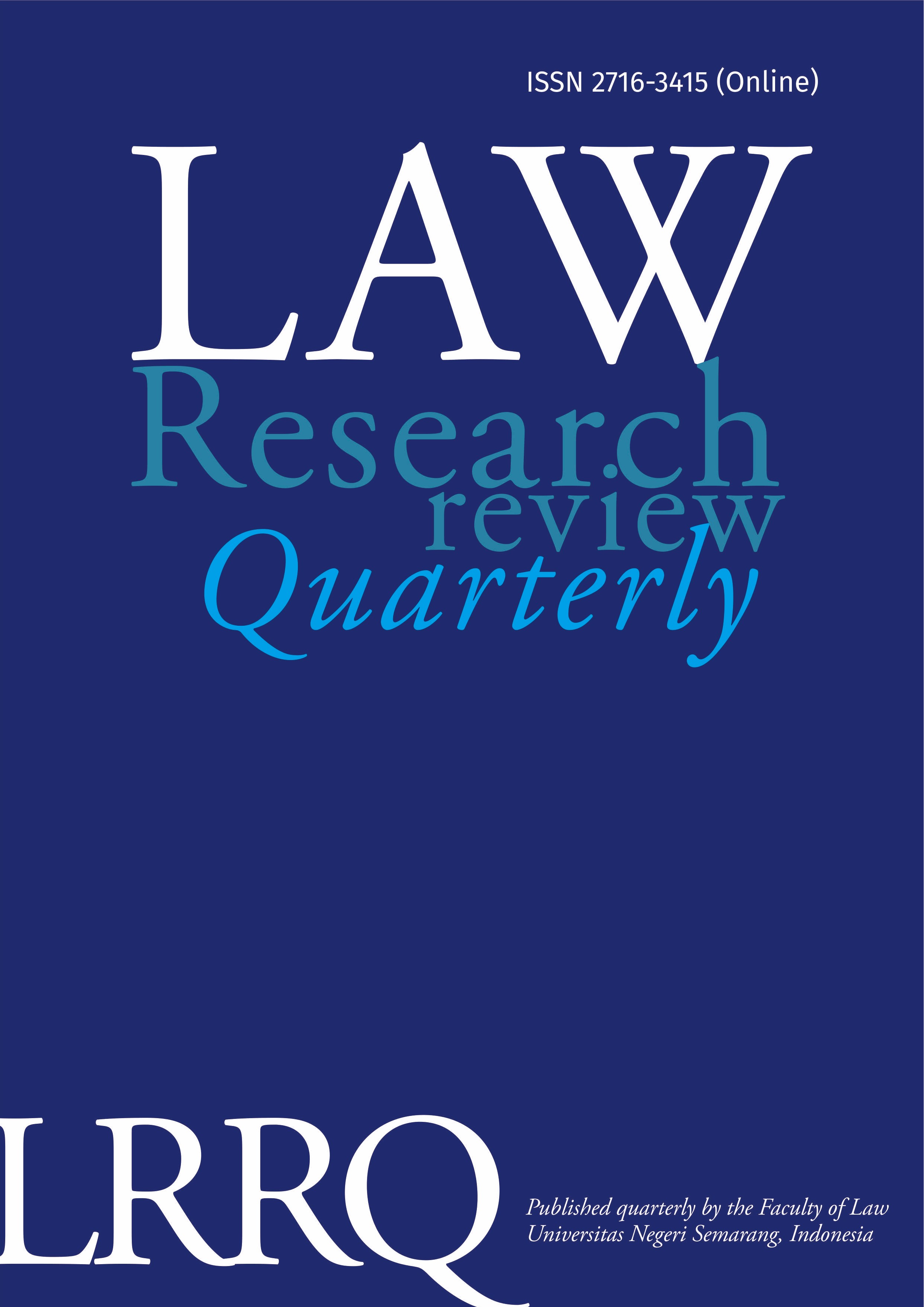Efforts to Increase Samapta Unit Patrols to Prevent Criminal Acts of Theft with Aggravated Circumstances
Main Article Content
Abstract
The research is motivated by the high crime of theft with weights in the Pemalang Police area, accompanied by increasing cases of theft with weights in the last 3 years. The National Police has the task of carrying out preventive actions through patrols as regulated in Perkabaharkam No.1 of 2017 concerning patrols. This study aims to determine the implementation of patrols carried out by the Pemalang Police Satsamapta and analyze the factors that influence it, as well as determine the efforts that must be made so that the patrols are carried out more optimally. This research was conducted with a qualitative approach, the type of case study research and data collection techniques with interviews, observations, and document studies. In this study also used Field Research Methods (Field Research) and used triangulation of data, sources, and theoretical to obtain data validity. From the results of the research, the initial conditions indicate that the implementation of patrols has not been maximized, especially with regard to implementation, member capabilities, procedures carried out, and organization. The result of research compiled various problem solving and creative breakthroughs that could be made to improve the implementation of patrols, and could be used as an effort to increase the patrols of the Pemalang Police Satsamapta.
Article Details

This work is licensed under a Creative Commons Attribution-ShareAlike 4.0 International License.
All writings published in this journal are personal views of the authors and do not represent the views of this journal and the author's affiliated institutions. Author(s) are retain the copyrights of the Article. However, before publishing, it is required to obtain written confirmation from Author(s) in order to ensure the originality (Author Statement of Originality). The statement is to be signed by at least one of the authors who have obtained the assent of the co-author(s) where applicable.This work licensed under a Creative Commons Attribution-ShareAlike 4.0 International (CC BY-SA 4.0)
References
Departemen Pendidikan Nasional. Kamus Bahasa Indonesia. Jakarta: Pusat Bahasa, 2008).
George, R, Terry, Leslie W. Rue. Dasar-Dasar Manajemen. Jakarta: PT. Bumi Aksara, 2003).
Lembaga Pendidikan dan Pelatihan Polri. Manajemen Operasional Polri. (Semarang: Akademi Kepolisian, 2016).
Lembaga Pendidikan dan Pelatihan Polri. Sabhara. (Semarang: Akademi Kepolisian, 2019).
Lembaga Pendidikan Polri Akademi Kepolisian. Pedoman Penulisan Dan Penilaian Tugas Akhir Taruna Akademi Kepolisian. (Semarang: Lembaga Pendidikan Polri Akademi Kepolisian, 2021).
Mangkunegara, Anwar Prabu. Evaluasi Kinerja SDM. (Bandung: Refika Aditama, 2005).
Moleong, Lexy J. Metodologi Penelitian Kualitatif. (Bandung: PT. Remaja Rosdakarya, 2017).
Muhammad, Farouk dan Djaali. Metodologi Penelitian Sosial. (Jakarta: PTIK Press, 2005).
Republik Indonesia. Kitab Undang-undang Hukum Pidana (KUHP).
Republik Indonesia. Peraturan Kepolisian Nomor 2 Tahun 2021 Tentang SOTK Polres dan Polsek
Republik Indonesia. Perkabaharkam Nomor 1 Tahun 2017 tentang Patroli.
Republik Indonesia. Undang-undang Republik Indonesia Nomor 2 Tahun 2002 tentang Kepolisian Negara Republik Indonesia.
Rohman, Abd, M.AP. Dasar-Dasar Manajemen. (Malang: CV. Cita Intrans Selaras, 2017).
Ruky, Ahmad. Sistem Manajemen Kinerja. (Jakarta: Gramedia Pustaka Utama, 2002).
Sugiyono, Sugiyono. Metode Penelitian Kualitatif. (Bandung: CV Alfabeta, 2017).
Sukarna, Sukarna. Dasar-Dasar Manajemen. (Bandung: CV Mandar Maju, 2011).
Sutopo, H. B. Metodologi Penelitian Kualitatif. (Surakarta: Universitas Sebelas Maret Press, 2002).
